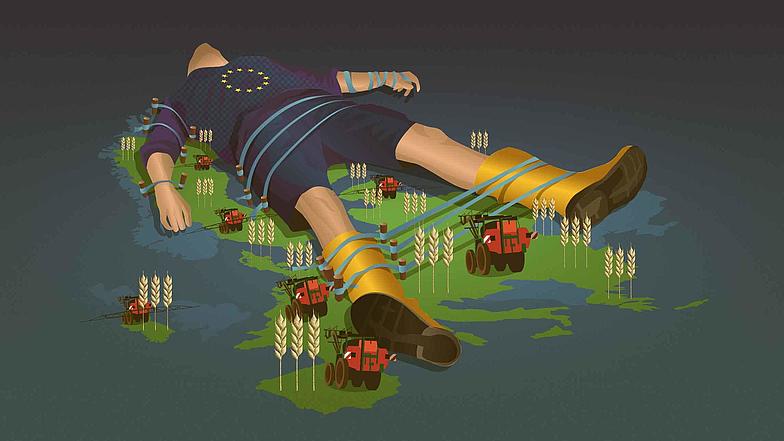The human food production system currently faces several serious threats: climate change, loss of biodiversity and rural exodus. Pesticides, as a part of “modern” agriculture are a main cause of these threats. That’s why Europe has to be freed from its pesticide trap.
Politicians must admit that the EU agricultural system is completely dependent on synthetic pesticides. The enormous damage and costs associated with this have not yet been factored into the price, let alone systematically remedied. This is no way to build a resilient and sustainable EU food system.Strategy Director of foodwatch International
Why F2F is not enough to overcome the problem
Since the very beginning of their use, the negative side effects of pesticides have been observed. Pests quickly became resistant. Pesticides eliminate beneficial organisms and may cause even higher pest pressure (resurgence). Both resistance and resurgence are leading to higher pesticide use (the vicious circle of dependency).
That’s why France, for example, failed completely a few years ago with its desired goal of 50 percent reduction in pesticide consumption. On the contrary, pesticide sales went up in most French departments and in important crops, such as wine grapes, soft wheat, barley and rapeseed.
With Farm to Fork (F2F) the European Commission for the first time set a concrete target for pesticide reduction of 50%. Reduction targets are a step but they will not deal with the fundamental problem of Europe’s farmers being locked-in to pesticide usage.
Targets, without appropriate policy measures, are pseudo-politics at the expense of all of us and future generations.
We are in a climate crisis and biodiversity crisis. Dealing with the dependency of Europe on pesticides will help us deal with several agricultural issues at the same time which will have an overall positive effect. There are no technical barriers, but solely political ignorance. The question at stake is: Are we for or against future food security in the EU?Independent expert on pesticides and author of the foodwatch-report
How to put an end to pesticides
We need policy measures not just targets. The foodwatch-report lists the measures that need to be taken: measures which will have a real impact on freeing Europe from this pesticide lock-in. It is manageable. It is realistic. It only depends on the right political decisions. The instruments are available and it is time to start now!
- Most urgent step is an EU-wide introduction of a pesticide tax. This would help to effectively reduces pesticides in taxing harmful substances more heavily than safe ones.
- Additionally, a reform of the current pesticide authorisation practice is needed. The current authorisation practice is too weak and allows almost any application applied for. All authorisations for pesticides should therefore be reviewed for their absolute necessity.
- Further, EU agricultural subsidies should be paid out for stopping the use of pesticides. This would make it economically worthwhile for farmers to escape the pesticide trap.
Sources and additional information
- foodwatch report: “Locked-in pesticides” (June 2022)
- abstract of the report (June 2022)
